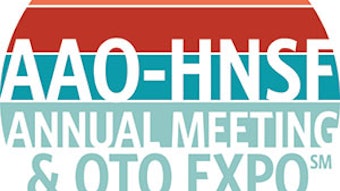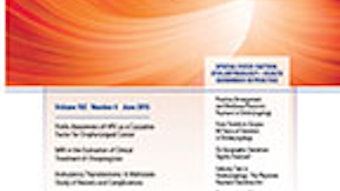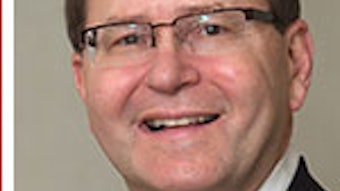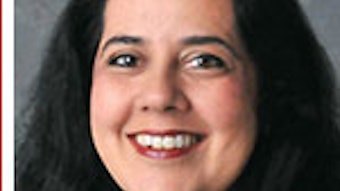AMA HOUSE OF DELEGATES REPORTIssues impacting otolaryngology
The American Medical Association (AMA) House of Delegates (HOD) held its annual meeting June 2015 in Chicago. Representing the Academy were Liana Puscas, MD, Delegation Chair; Delegates Michael S. Goldrich, MD, and Shannon P. Pryor, MD; Alternate Delegates Robert Puchalski, MD, and Academy EVP/CEO James C. Denneny III, MD. Of note, Dr. Puchalski gave a stirring AMPAC speech about the importance of engaging in advocacy in his new role as Chair of AMPAC, the AMA’s political action committee.
By Liana Puscas, MD, Chair, AAO-HNS Representative to the AMA House of Delegates
 Liana Puscas, MD
Liana Puscas, MDThe American Medical Association (AMA) House of Delegates (HOD) held its annual meeting June 2015 in Chicago. Representing the Academy were Liana Puscas, MD, Delegation Chair; Delegates Michael S. Goldrich, MD, and Shannon P. Pryor, MD; Alternate Delegates Robert Puchalski, MD, and Academy EVP/CEO James C. Denneny III, MD. Of note, Dr. Puchalski gave a stirring AMPAC speech about the importance of engaging in advocacy in his new role as Chair of AMPAC, the AMA’s political action committee.
The AMA discussed many resolutions, and those that are especially pertinent to the practice of otolaryngology-head and neck surgery are summarized.
Compounded medications and access to in-office administered drugs

Partial credit for meaningful use
The HOD voted to work with the Centers for Medicare & Medicaid Services (CMS) and other relevant stakeholders to allow for partial credit for eligible professionals accomplishing one or more objectives in the meaningful use (MU) program. With the expense of EHR (electronic health record) implementation and the burdens of MU criteria, those physicians who are able to meet certain criteria of MU should be able to reap the rewards of good-faith partial compliance.
MOC and MIPS
The repeal of Medicare’s flawed SGR formula brought about a new program for physician payment called the Merit-Based Incentive Payment System (MIPS). MIPS will consolidate many of the components of the current EHR meaningful use, PQRS (Physician Quality Reporting System), and Value-based payment modifier programs. MIPS will also require practice improvement similar to the philosophy underlying Part IV of MOC. There was widespread support for designing and/or aligning these two programs so a practice improvement project would satisfy both programs and could increase the chances that other third-party payers would also accept such efforts in fulfillment of their quality measures.
COBRA grace period
The HOD voted to strongly advocate to ensure physicians are notified when patients are within the 45- or 30-day COBRA grace periods in a manner similar to the ACA-required insurance marketplace 90-day notifications for physicians. The goal is to require such information to be provided in real-time to physicians’ offices.
The next meeting of the AMA HOD is scheduled for November 14-17, 2015, in Atlanta, GA. With questions regarding this report and other AMA HOD activities, please contact govtaffairs@entnet.org.













